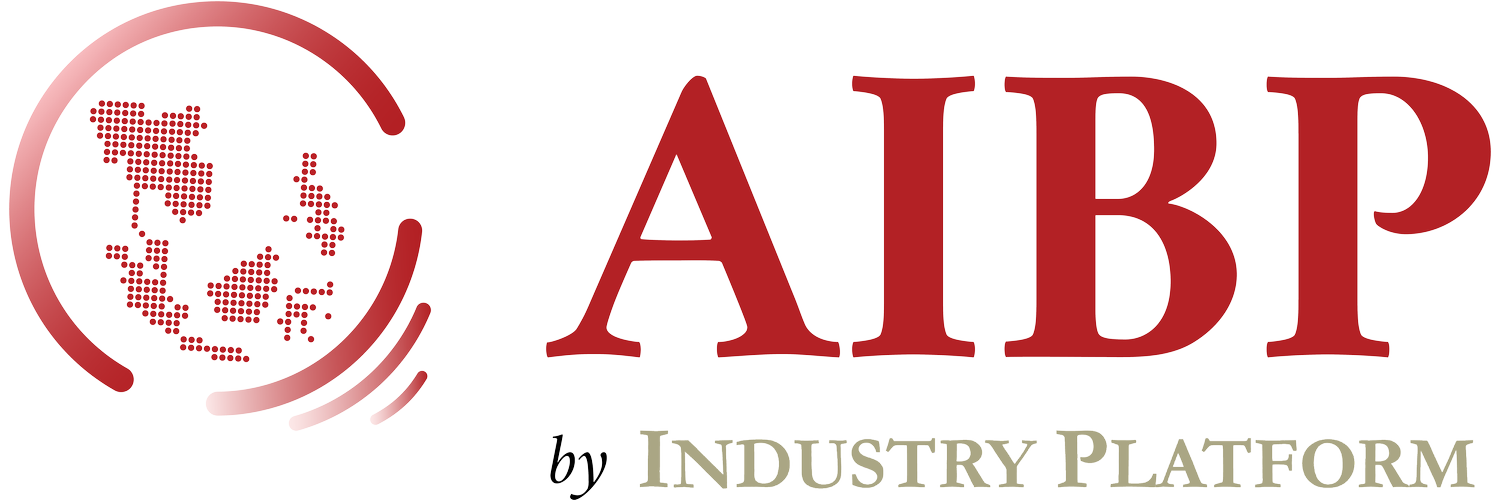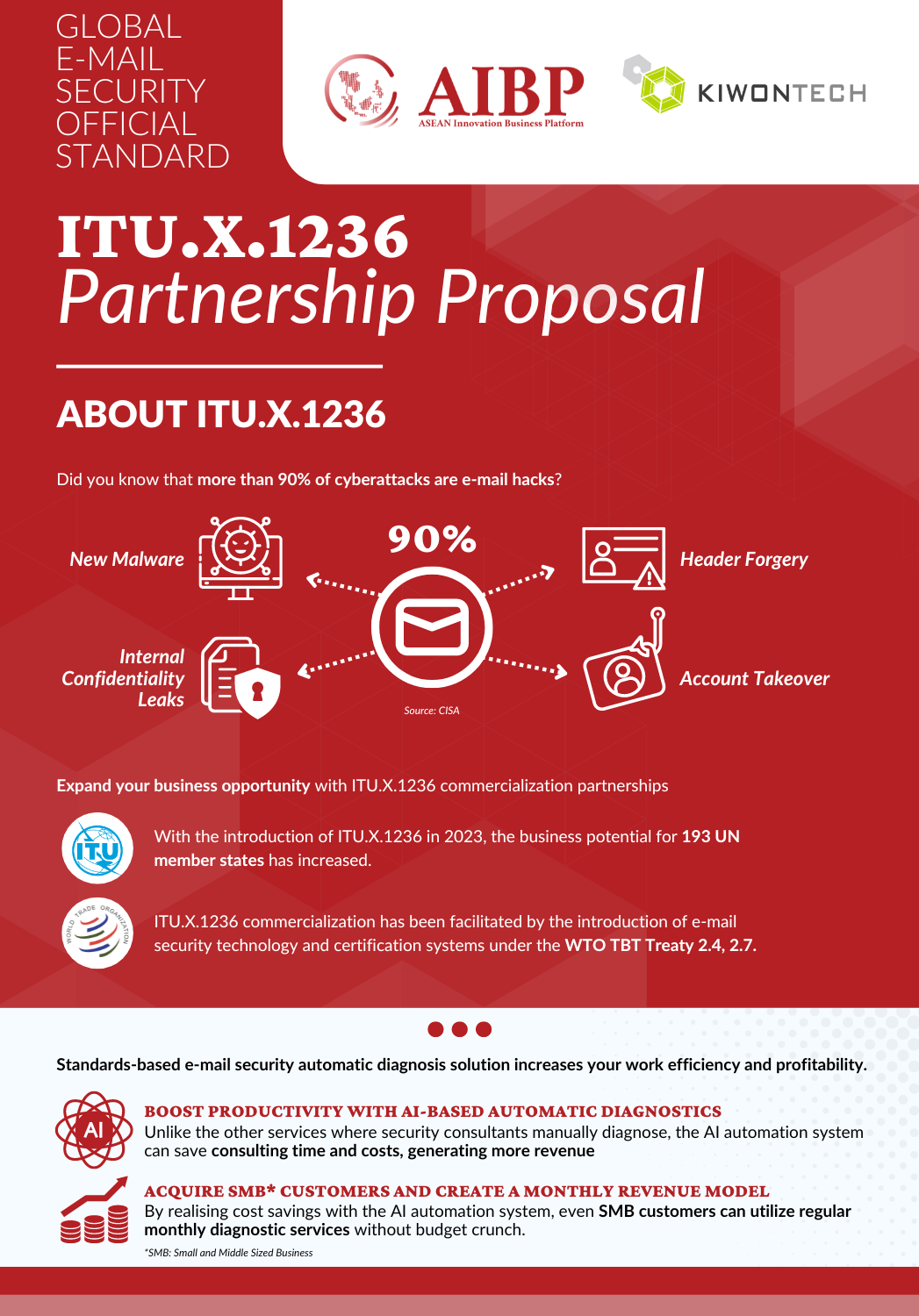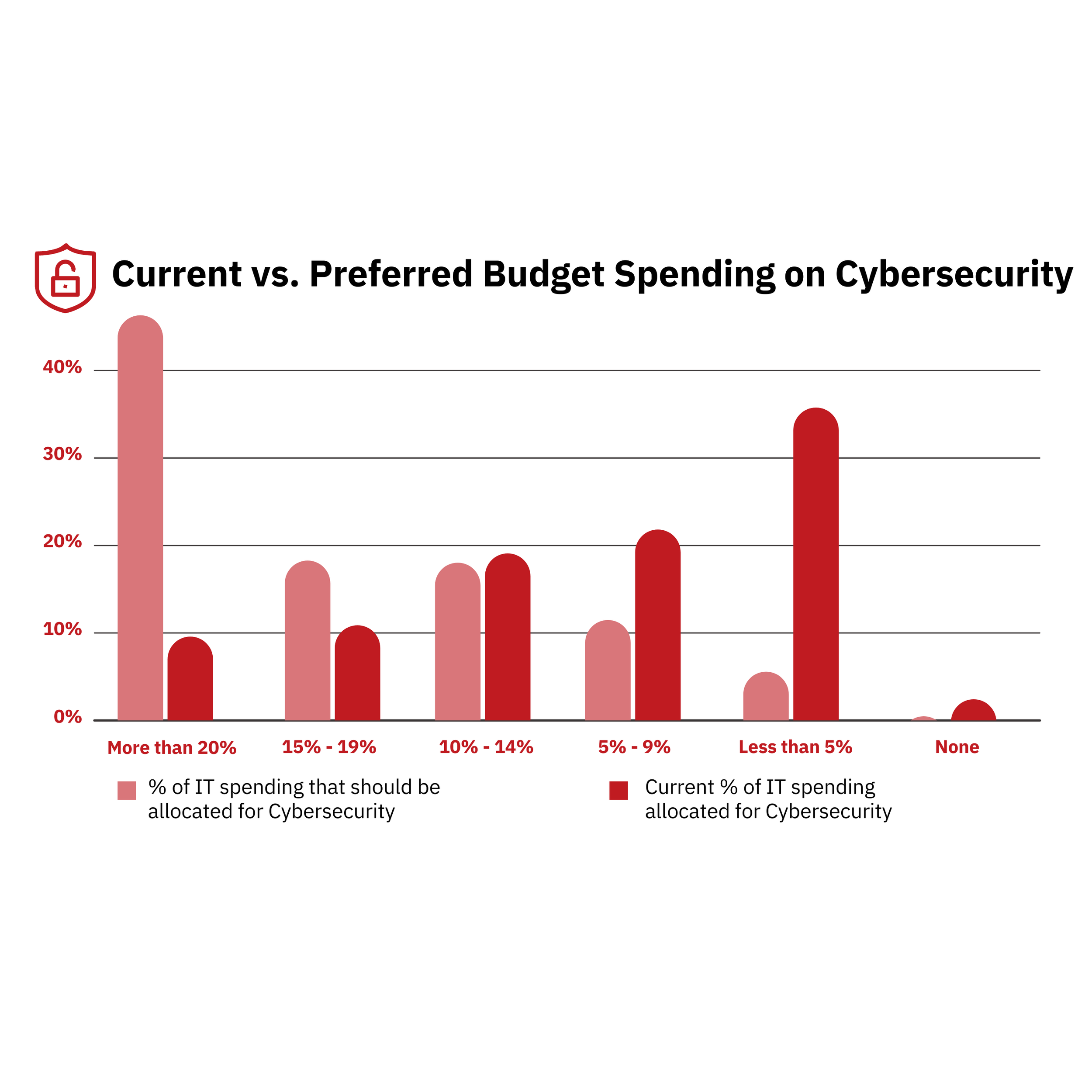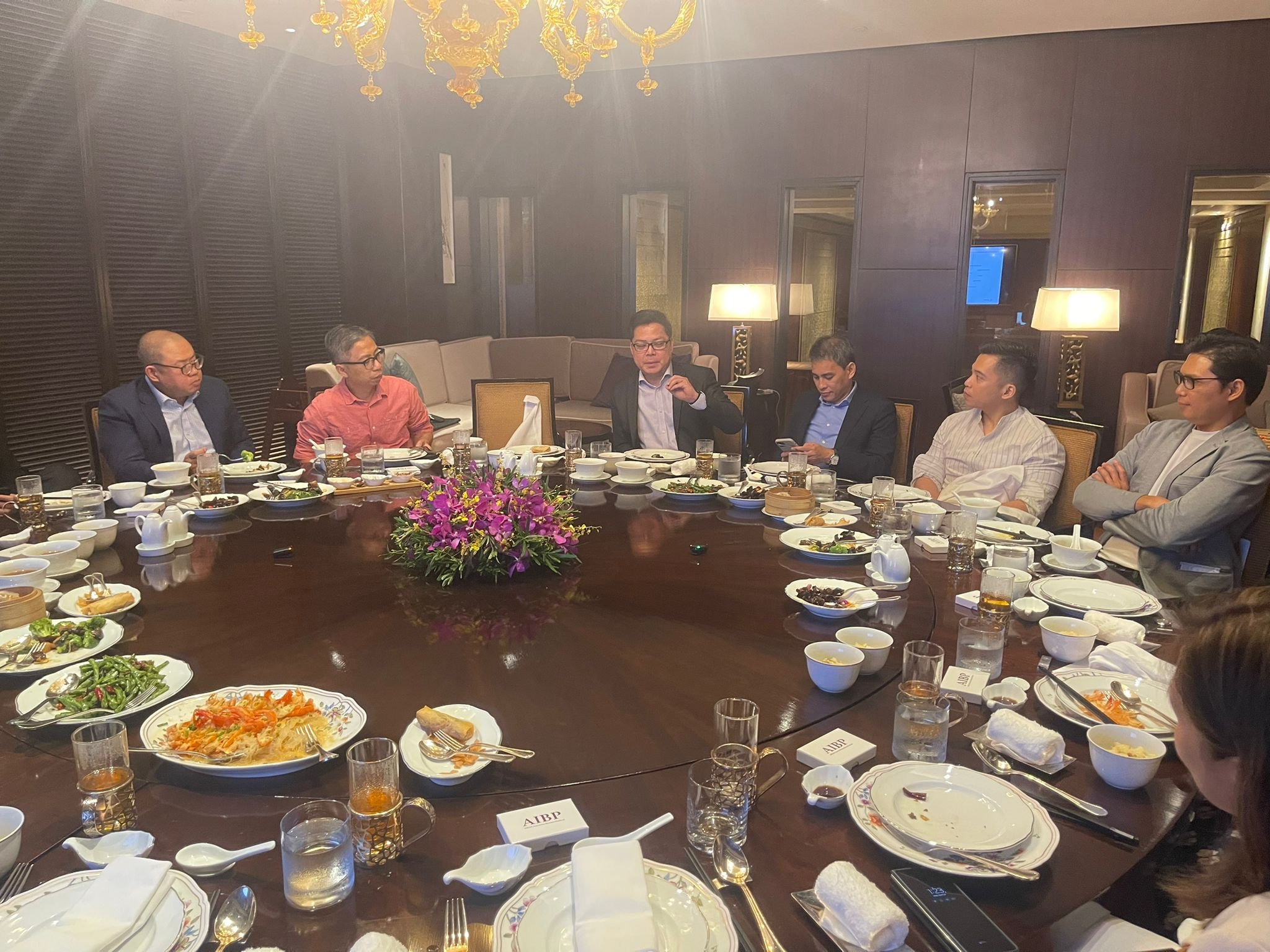Explore a Partnership with Kiwontech
4 - 5 September 2024
W Kuala Lumpur
Benefits Offered
Service Offerings:
ITU standards help IT consulting companies develop and offer standardized services and solutions to their clients. This ensures that the solutions are compatible with global systems and meet international benchmarks, making them more attractive to clients who operate in multiple countries or industries.
Competitive Advantage:
Adherence to ITU standards can provide a competitive edge. Clients are often looking for consulting partners who follow best practices and international standards to ensure quality, security, and efficiency. IT consulting firms that emphasize their compliance with ITU standards can differentiate themselves in the market.
-
ITU standards provide a framework for quality assurance. Consulting firms can use these standards to structure their project methodologies, ensuring consistent quality across different projects and clients. This enhances their reputation for reliability and excellence.
-
Clients are more likely to trust consulting firms that adhere to recognized international standards. This trust can lead to stronger client relationships, repeat business, and positive referrals, all of which are crucial for the growth and sustainability of consulting companies.
-
Standardization often leads to cost savings. By following ITU standards, consulting firms can reduce the need for developing custom solutions from scratch, which saves time and resources. These cost efficiencies can be passed on to clients, making the consulting services more competitive.
-
IT consulting companies frequently work on projects that involve integrating diverse systems and technologies. ITU standards ensure that these systems can interoperate smoothly, reducing the complexity and risks associated with integration projects.
-
Consulting firms must ensure that their solutions help clients comply with local and international regulations. ITU standards often form the basis of these regulations. By designing solutions that adhere to ITU standards, consulting firms help clients stay compliant and avoid legal complications.
-
ITU standards are continuously updated to reflect the latest technological advancements. Consulting firms that follow these standards can ensure their solutions are current and innovative, providing clients with state-of-the-art technology.
-
For IT consulting companies looking to expand internationally, familiarity with ITU standards is essential. These standards facilitate smoother entry into new markets by ensuring that the firm's solutions are recognized and accepted globally.
-
ITU standards provide a foundation for training and certification programs. Consulting firms can use these standards to train their staff, ensuring they have the necessary skills and knowledge to deliver high-quality services. Certifications based on ITU standards can also be a marketing tool to demonstrate expertise.
Register your Interest to Meet Kiwontech in Malaysia
Get in touch.
aibp@industry-platform.com
(+65) 6733 - 1107
For the latest ASEAN Digitalisation Updates, connect with AIBP
Cybersecurity Challenges
Shaping Southeast Asia’s Digital Transformation Landscape
We surveyed over 300 business and IT professionals across the ASEAN region. The survey results revealed that 46% of ASEAN enterprises believe their organisations should allocate more than 20% of their IT budget to cybersecurity. However, at present, over 35% of these organisations allocate less than 5% of their budget to cybersecurity.
In Southeast Asia, the march towards digital transformation is hindered by a formidable obstacle - the rising spectre of cybersecurity and privacy concerns. In 2022, cybersecurity and privacy concerns erupted as one of the Top 5 challenges to Digital Transformation for Southeast Asian enterprises. A striking 28% of surveyed organisations signalled that cybersecurity was a significant impediment. Now, as we find ourselves in 2023, this trend continues to escalate, with 32% of enterprises expressing their worries about cybersecurity hindering their digital transformation journey.
Cybersecurity breaches are costing ASEAN dearly, with an alarming average loss of US$3.05 million per data breach in the region due to malicious cyberattacks, according to IBM's Cost of a Data Breach Report 2023. The primary battleground for these attacks? The financial services sector, where the frontlines are under constant siege from malevolent actors armed with sophisticated malware.
As Southeast Asia presses forward with its digital transformation, the unyielding challenges of cybersecurity and privacy not only persist but deepen, signalling an urgent call for strengthened defences. Addressing these cyber threats with strategic rigour will be crucial in safeguarding the region's digital progress and economic stability, ensuring that innovation thrives on a foundation of robust security.
In 2022, Cybersecurity and Privacy Concerns has gained increased prominence as one of the Top 5 Challenges to Digital Transformation for South East Asian Enterprises.
Mobile App Security in Vietnam: A Growing Concern for CISOs and Cybersecurity Leaders - Highlights from Vietnam
-
Strengthening cyberspace resilience is crucial for both enterprises and government agencies, as cyber threats continue to rise in countries like Vietnam and Malaysia.
A 3-pronged strategy of Processes, People, and Technology can be used to promote cybersecurity transformation and threat deterrence.
The rising prevalence of cybersecurity attacks in the mobile application space highlights the need for stronger platform security, as well as collaboration between banking institutions, government agencies, and higher education institutions to combat cyber threats in Vietnam.
Navigating the ASEAN Cybersecurity Landscape: Perspectives from Indonesia and Vietnam
-
The rapidly evolving digital landscape in Southeast Asia presents advancements and cybersecurity challenges.
ASEAN countries, with their large populations and growing digital economies, are increasingly vulnerable to cyber threats and attacks.
Cybersecurity and privacy concerns are major obstacles to digital transformation in the region.
The interconnectedness of ASEAN countries creates a complex cybersecurity landscape where threats can transcend national borders.
Indonesia and Vietnam are actively addressing cybersecurity challenges through national strategies, collaboration with institutions, public awareness campaigns, and legislation.
Is cybersecurity spending indicative of commitment to protect assets, reputation, and stakeholders? - Highlights from AIBP Malaysia Advisory Board
-
Cybersecurity is crucial for digital transformation success as organisations become more vulnerable to cyber threats.
Investing in proactive cybersecurity measures is essential for protecting digital assets and infrastructure.
Food security is a significant issue in Malaysia, and measures need to be taken to ensure the country's food supply remains secure and sustainable.
Integrating ESG goals into business operations and decision-making processes can provide long-term benefits beyond compliance.
Standardisation of ESG metrics and regulatory guidance is necessary to ensure consistent implementation across different companies and industries.
Can a minimum viable security product (MVSP), help with effective cybersecurity management? - Highlights from AIBP Philippines Advisory Board
-
On deciding which digital capabilities to manage centrally to drive efficiencies, it is important to measure scalability in reducing the cost to serve, while managing time resources spent.
On increased cybersecurity risks, a centrally guided cybersecurity roadmap is crucial for conglomerates, with businesses at varying degrees of digital maturity. The discussion highlighted the importance of the minimum viable security product (MVSP), which establishes a baseline security checklist for effective cybersecurity management in the evolving digital landscape.
On enabling a hybrid work model. The shortage of skilled digital workers in the Philippines means that organisations that wish to hire these resources have to offer a hybrid work environment as table stakes. However the availability of technologies such as 3D modelling has also made previously resource intensive work such as maintaining remote sites more efficient. Several companies have also started exploring how to use generative AI to plug the gap. Philippines, with the youngest median age of 25.7 amongst the ASEAN-5, seems to be an an inflection point when it comes to the evolution of work culture
On conglomerates, business consolidation and the value it provides. Mergers and acquisitions are key tools to utilize in extracting value and the Philippines has seen its fair share of consolidation, especially within the banking industry. Discussions centred around creating effective shared services and utilizing scale for technology adoption.









